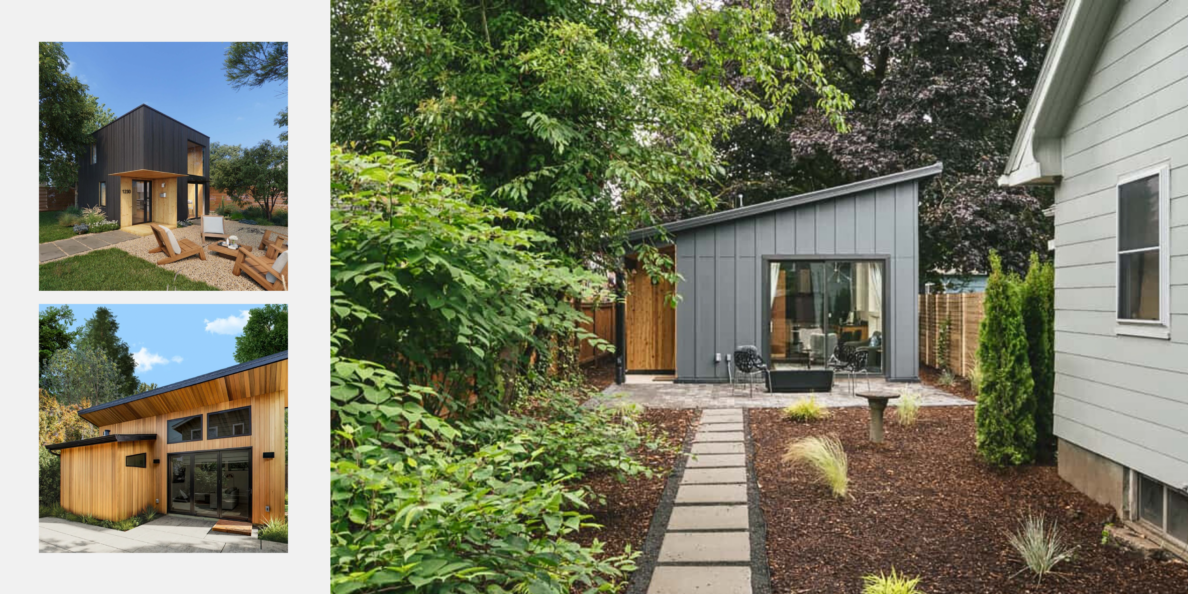Add an ADU to Your Property!
Thinking about adding an Accessory Dwelling Unit to your home? Whether you’re looking to generate rental income, support multigenerational living, or simply make better use of your space, building an ADU is a smart, future-ready investment. Many towns in Massachusetts—including Arlington, Lexington, Belmont, and Woburn—are making it easier than ever to build one.
The team at McDonald Contracting is here to help you get started and design an ADU that’s perfectly tailored to your property and lifestyle.
Why Invest in an Accessory Dwelling Unit?!
Proximity
Keep loved ones close while maintaining privacy. Ideal for aging parents, adult children, or extended family.
Flexibility
Use the space however life demands—start with a rental, then turn it into a home office, guest suite, or studio as your needs evolve.
Privacy
Enjoy separate living with private kitchens, bathrooms, and entrances—perfect for multi-generational households or independent living.
Property Value
Homes with ADUs typically sell for more. Extra living space appeals to multi-generational families, buyers, and investors alike.
Extra Income
Earn steady income through long-term rentals. Great for offsetting mortgage costs & expenses.
Frequently Asked Questions:
An Accessory Dwelling Unit (ADU) is a smaller, independent residential unit located on the same lot as a single-family home. It can be attached (like a basement or garage conversion) or detached (a separate structure)
ADUs can serve many purposes—long-term rentals, short-term Airbnb-style stays, a home office, a guest suite, or housing for family members such as aging parents or adult children.
Size limits vary by town. Most towns cap ADUs between 600–1,200 square feet or a percentage of the main home’s size. Be sure to check your local regulations for specifics.
Yes, all towns require permits. Depending on the town, you may need zoning approval, a building permit, and possibly a special permit. Your local Inspectional Services Department can provide the exact requirements.
In many towns, yes! Some towns allow short-term or long-term rentals, while others may require the property owner to live on-site. Rental rules vary, so be sure to check your town’s guidelines.
Potentially. Adding an ADU may increase your property value, which could lead to a higher property assessment and, therefore, higher taxes. However, the added rental income often outweighs this cost.
Yes, many homeowners convert existing spaces into ADUs. This is often more cost-effective than building new. Just ensure the converted space meets code requirements (like ceiling height, windows, and ventilation).
Learn More About Your Town!

Many local towns have resources and regulations to help you begin planning your Accessory Dwelling Unit (ADU).
Arlington, MA
Learn about Arlington’s ADU policies, including size limitations and permitting processes.
Lexington, MA
Explore Lexington’s ADU guidelines, detailing the types of accessory apartments permitted and their requirements.
Belmont, MA
Stay informed about Belmont’s proposed ADU by-law and related planning board actions.
Woburn, MA
Review Woburn’s ADU policies, including size limitations and parking requirements.
Cambridge, MA
Understand Cambridge’s ADU regulations, including zoning ordinances and special permit requirements.
Each town has unique requirements and opportunities for ADU development. Be sure to consult your local planning or building department for the most current information.
Reach Out to Get Started!

